Belgrade suggests Hong Kong model
Serbian officials believe that a Kosovo solution based on the arrangement between China and Hong Kong could be a good idea.
Monday, 05.11.2007.
09:24

Serbian officials believe that a Kosovo solution based on the arrangement between China and Hong Kong could be a good idea. The latest round of direct negotiations between Belgrade and Pristina was held at the Austrian Ministry of Foreign Affairs in Vienna, mediated by the Contact Group Troika of diplomats which includes EU's Wolfgang Ischinger, Frank Wisner representing the United States, and Aleksandr Botsan-Kharchenko of Russia. Belgrade suggests Hong Kong model Separate morning talks with delegations of Serbian authorities, led by President Boris Tadic, and Prime Minister Vojislav Kostunica, and Kosovo Albanian leadership, including Prime Minister Agim Ceku and President Fatmir Sejdiu, were followed by a session where the two teams negotiated directly in the afternoon. Tadic told his interlocutors that the talks needed to concentrate on one basic principle, a speedy progress toward European integration, and suggested the arrangement between China and Hong Kong as the possible model for the future status of Kosovo. "Public threats, artificial deadlines, and the manipulation of fears will not help to achieve a solution to the issue that we are negotiating. I note with satisfaction that in the last weeks we have seen a somewhat calmer tone in the international community, and I wish to acknowledge this," the president said. Tadic then singled out the Hong Kong model, which, in his words, "provides elements that should be assessed carefully as offering answers to the challenges we are addressing." "First, a single constitutional framework is agreed within which different parts may govern themselves and cooperate under a common sovereign roof. As a natural parallel, there is no freedom to either party to take unilateral action regarding constitutional and sovereign matters." "Second, internationally-recognized borders are not altered. They remain unchanged and protected through cooperation with the international community. Third: the development of any security forces is clearly restricted to a local capacity to ensure law and order." "These conditions are very much in line with our proposal about how to move ahead on the future status of Kosovo," Tadic said. Kostunica backed the president's idea by saying that the Hong Kong model was "successful, stable, sustainable and functional." "There is no serious reason why we should not compare the Serbian proposal of essential autonomy with the agreement reached in the case of Hong Kong," he said. "In this way it could be appraised whether the essential autonomy plan was really a proposal that was not connected with the real life, or if it was a realistic solution for a future arrangement of the province," Kostunica concluded as he addressed the mediators and the Pristina team. The Serbian state team (FoNet) Interesting ideas, says Kharchenko Wolfgang Ischinger described Monday's talks as long, and said that the Troika continued its work along the parameters set by UN Resolution 1244 and the Contact Group, in an effort to reach a compromise between the two sides. "The Troika is ready to consider all options, except those, such as Kosovo's partition, that we have already rejected," Ischinger said. "We are here to help the sides arrive at a compromise, and as part of that effort, we have put forward a brief document, that was supposed to stay secret. That's the 14-point paper," he added. The mediators declined to discuss Belgrade's Hong Kong proposal in detail with reporters. Frank Wisner explained that the Troika cannot talk about concrete proposals that come up during the negotiations, "since that would take away the teams' flexibility in the talks." Aleksandr Botsan-Kharchenko for his part said that "several interesting solutions" surfaced during the meetings, and that the Serbian authorities sought to prove their proposal to be functional. "Progress has been made, but I cannot say that these ideas help the sides or us to overcome the differences, there is a chance of a compromise, but it is very slim," Kharchenko said. The Troika diplomats (FoNet) Pristina: Serbia out to destroy process But the Kosovo Albanians described today's talks as yielding no progress, and put the blame for that on Belgrade's position. "We think that Belgrade wishes to discuss its sovereignty over Kosovo. Serbia wishes to destroy this process. There can be no talk of Serbia's sovereignty over Kosovo. We are in favor of a stable solution, and the only such solution is Kosovo's independence," Skender Hyseni of the Pristina team told reporters in the Austrian capital Monday. He also addressed the Hong Kong idea put forward by official Serbian negotiators. "This is inappropriate, since Hong Kong's and Kosovo's historical positions are completely different. One historical model cannot be applied to completely different historical circumstances," Hyseni believes. He added Kosovo will try to reach its goals, "in order to create a peaceful environment for all communities" living there. The Pristina team (FoNet) Ahead of today's round Earlier, Kosovo Minister Slobodan Samardzic said that discussions of Kosovo’s future status and Belgrade’s response to the Troika’s proposal will be on the agenda. “We are continuing the talks. I believe that there is still room to talk about status. That topic is on the agenda this afternoon and it has not been exhausted. We will discuss the ’14 points’ – the Troika’s proposal. That is the final issue on the agenda,” Samardzic said. He added that Belgrade already gave its answer to the Troika proposal and that this was the reason for holding the last set of meetings in Vienna. “However, our answer was not on the agenda then because we were only discussing status. We now expect that the Troika and the Albanian delegation will open discussions on the topic of our rebuttal and ask question directly related to our document,” Samardzic said. “We have many topics to discuss and a lot of room to try and do something that will help both sides reach a solution of compromise,” Samardzic said. He said that the talks would not include discussion of European Union official Wolfgang Ischinger’s proposal to solve the Kosovo problem similar to the agreement of the two Germanys made in 1972. “That proposal will not be on the agenda,” Samardzic said, explaining that Belgrade aims to show its practical side and participate with its already planned approach. “This is an approach which calls for essential autonomy within the framework of Serbia. We are showing that this is a good solution, not only for Serbs and Albanians, but for Serbia and Kosovo – an already functional solution, which can function if the international community accepts it, of course, and if there is good will from the Albanian side,” Samardzic said. “That good will of the Albanian side has been missing for clearly abstract political reasons. We believe that it is a good proposal which can function in everyday life,” Samardzic said.
Belgrade suggests Hong Kong model
Separate morning talks with delegations of Serbian authorities, led by President Boris Tadić, and Prime Minister Vojislav Koštunica, and Kosovo Albanian leadership, including Prime Minister Agim Ceku and President Fatmir Sejdiu, were followed by a session where the two teams negotiated directly in the afternoon.Tadić told his interlocutors that the talks needed to concentrate on one basic principle, a speedy progress toward European integration, and suggested the arrangement between China and Hong Kong as the possible model for the future status of Kosovo.
"Public threats, artificial deadlines, and the manipulation of fears will not help to achieve a solution to the issue that we are negotiating. I note with satisfaction that in the last weeks we have seen a somewhat calmer tone in the international community, and I wish to acknowledge this," the president said.
Tadić then singled out the Hong Kong model, which, in his words, "provides elements that should be assessed carefully as offering answers to the challenges we are addressing."
"First, a single constitutional framework is agreed within which different parts may govern themselves and cooperate under a common sovereign roof. As a natural parallel, there is no freedom to either party to take unilateral action regarding
constitutional and sovereign matters."
"Second, internationally-recognized borders are not altered. They remain unchanged
and protected through cooperation with the international community. Third: the development of any security forces is clearly restricted to a local capacity to ensure law and order."
"These conditions are very much in line with our proposal about how to move ahead on the future status of Kosovo," Tadić said.
Koštunica backed the president's idea by saying that the Hong Kong model was "successful, stable, sustainable and functional."
"There is no serious reason why we should not compare the Serbian proposal of essential autonomy with the agreement reached in the case of Hong Kong," he said.
"In this way it could be appraised whether the essential autonomy plan was really a proposal that was not connected with the real life, or if it was a realistic solution for a future arrangement of the province," Koštunica concluded as he addressed the mediators and the Priština team.
Interesting ideas, says Kharchenko

"The Troika is ready to consider all options, except those, such as Kosovo's partition, that we have already rejected," Ischinger said.
"We are here to help the sides arrive at a compromise, and as part of that effort, we have put forward a brief document, that was supposed to stay secret. That's the 14-point paper," he added.
The mediators declined to discuss Belgrade's Hong Kong proposal in detail with reporters. Frank Wisner explained that the Troika cannot talk about concrete proposals that come up during the negotiations, "since that would take away the teams' flexibility in the talks."
Aleksandr Botsan-Kharchenko for his part said that "several interesting solutions" surfaced during the meetings, and that the Serbian authorities sought to prove their proposal to be functional.
"Progress has been made, but I cannot say that these ideas help the sides or us to overcome the differences, there is a chance of a compromise, but it is very slim," Kharchenko said.
Priština: Serbia out to destroy process

"We think that Belgrade wishes to discuss its sovereignty over Kosovo. Serbia wishes to destroy this process. There can be no talk of Serbia's sovereignty over Kosovo. We are in favor of a stable solution, and the only such solution is Kosovo's independence," Skender Hyseni of the Priština team told reporters in the Austrian capital Monday.
He also addressed the Hong Kong idea put forward by official Serbian negotiators.
"This is inappropriate, since Hong Kong's and Kosovo's historical positions are completely different. One historical model cannot be applied to completely different historical circumstances," Hyseni believes.
He added Kosovo will try to reach its goals, "in order to create a peaceful environment for all communities" living there.
Ahead of today's round
Earlier, Kosovo Minister Slobodan Samardžić said that discussions of Kosovo’s future status and Belgrade’s response to the Troika’s proposal will be on the agenda.“We are continuing the talks. I believe that there is still room to talk about status. That topic is on the agenda this afternoon and it has not been exhausted. We will discuss the ’14 points’ – the Troika’s proposal. That is the final issue on the agenda,” Samardžić said.
He added that Belgrade already gave its answer to the Troika proposal and that this was the reason for holding the last set of meetings in Vienna.
“However, our answer was not on the agenda then because we were only discussing status. We now expect that the Troika and the Albanian delegation will open discussions on the topic of our rebuttal and ask question directly related to our document,” Samardžić said.
“We have many topics to discuss and a lot of room to try and do something that will help both sides reach a solution of compromise,” Samardžić said.
He said that the talks would not include discussion of European Union official Wolfgang Ischinger’s proposal to solve the Kosovo problem similar to the agreement of the two Germanys made in 1972.
“That proposal will not be on the agenda,” Samardžić said, explaining that Belgrade aims to show its practical side and participate with its already planned approach.
“This is an approach which calls for essential autonomy within the framework of Serbia. We are showing that this is a good solution, not only for Serbs and Albanians, but for Serbia and Kosovo – an already functional solution, which can function if the international community accepts it, of course, and if there is good will from the Albanian side,” Samardžić said.
“That good will of the Albanian side has been missing for clearly abstract political reasons. We believe that it is a good proposal which can function in everyday life,” Samardžić said.






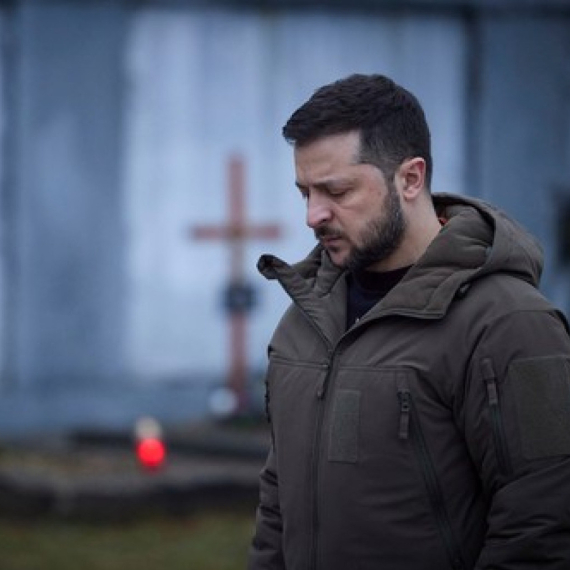









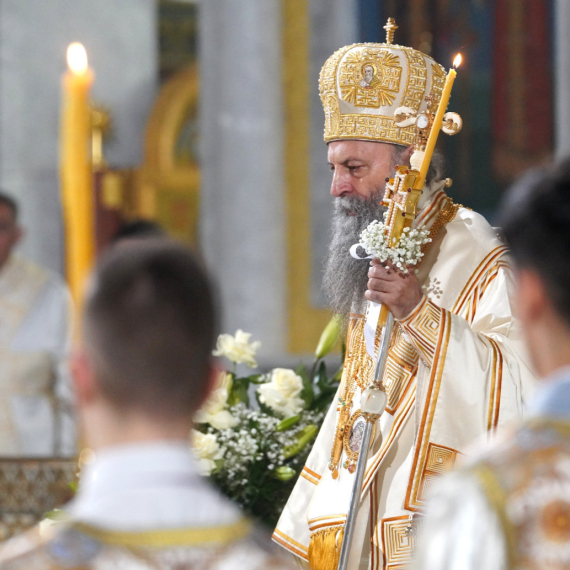

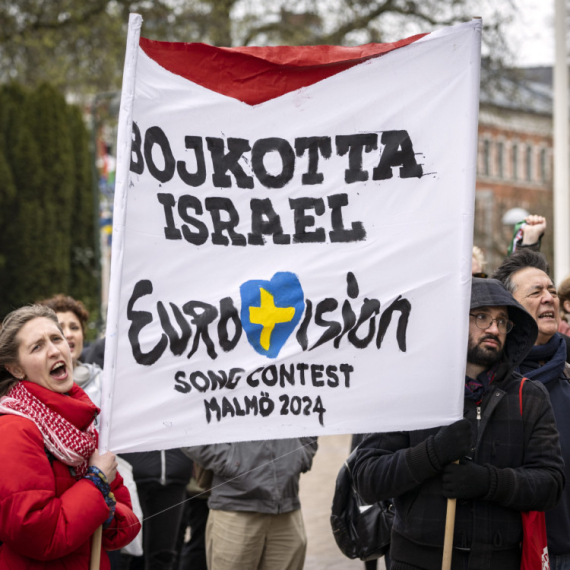




















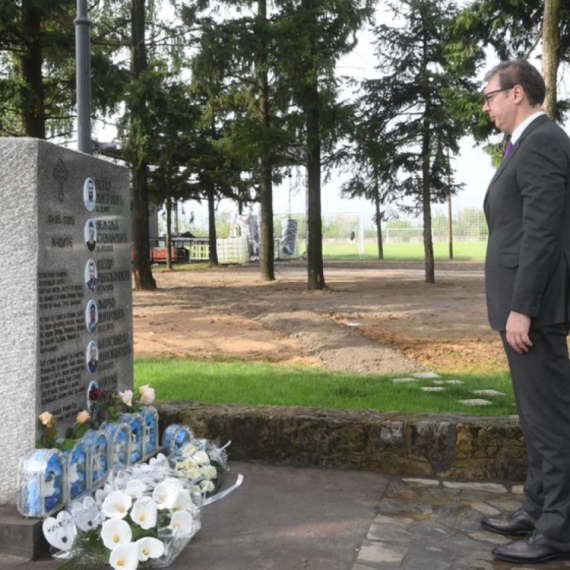

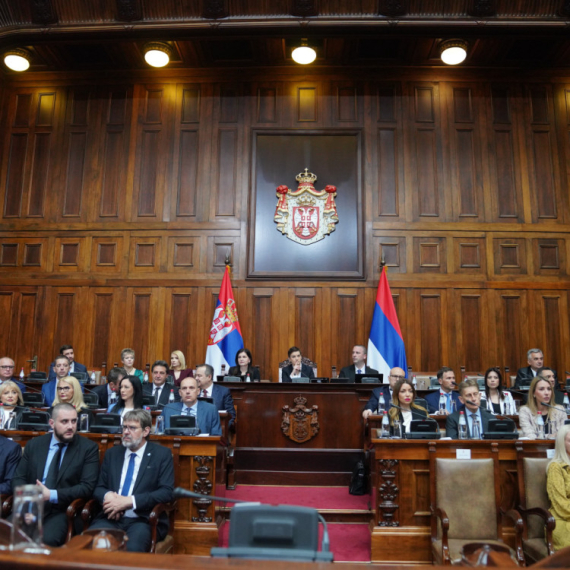
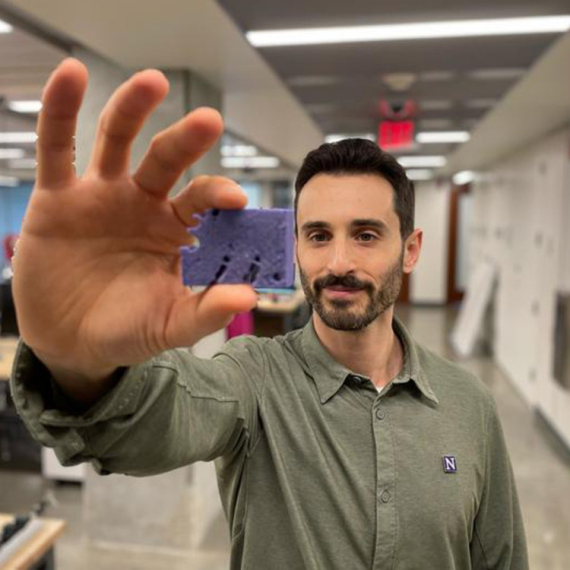








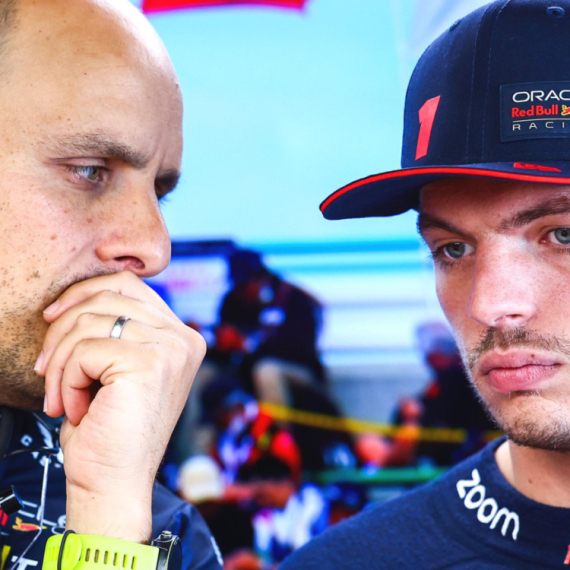


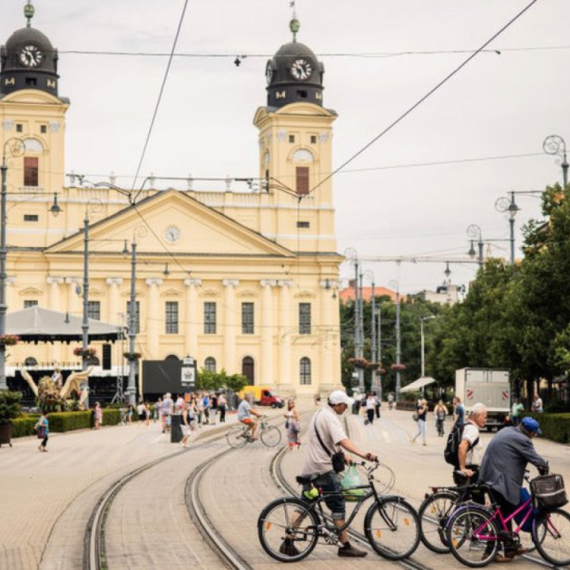
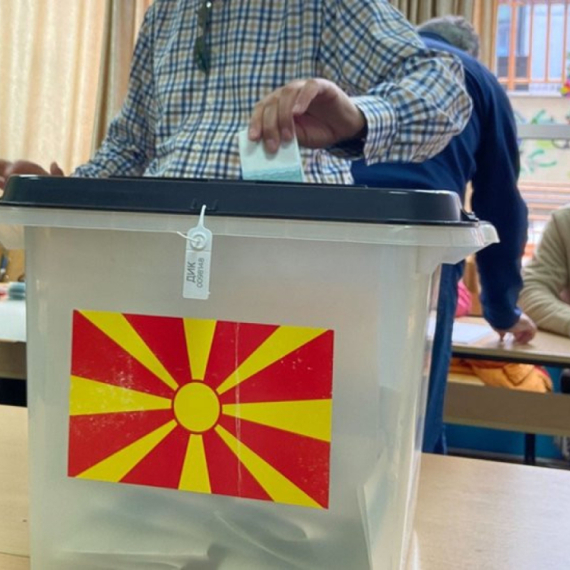

Komentari 35
Pogledaj komentare